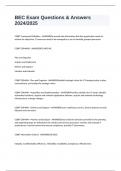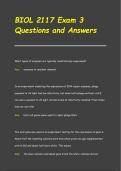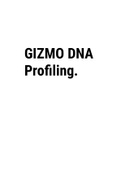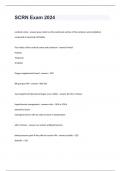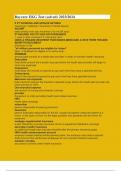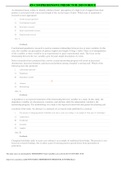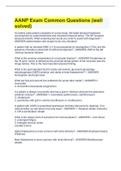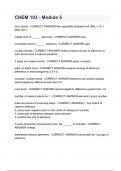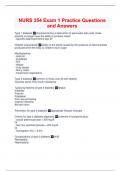Exam (elaborations)
BEC Exam Questions & Answers 2024/2025
- Course
- Institution
BEC Exam Questions & Answers 2024/2025 COBIT Framework Definition - ANSWERSTo provide the information that the organization needs to achieve its objectives, IT resources need to be managed by a set of naturally grouped processes COBIT DOMAINS - ANSWERSPO AIDS ME Plan and Organize Acqui...
[Show more]
